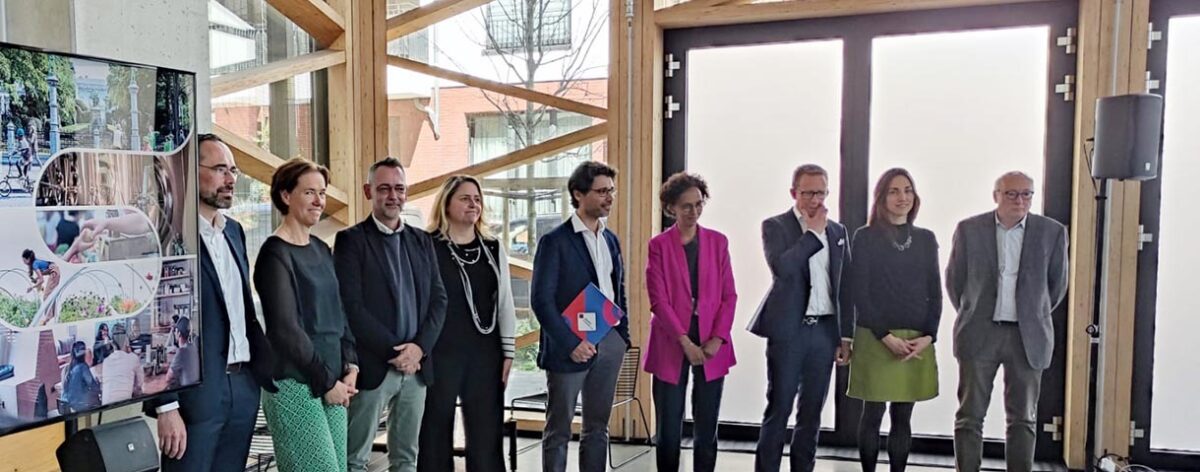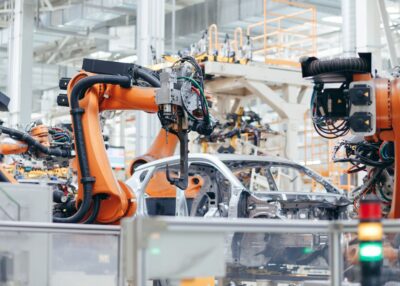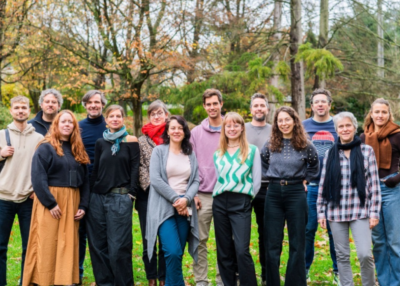
Shifting Economy: moving towards a decarbonised Brussels economy
Carbon neutrality by 2050. Relocation of economic activity. Maintenance and creation of quality jobs. Reduction of inequalities. These are just a few of the objectives of the Shifting Economy, a regional strategy co-created with many of the stakeholders in the Brussels ecosystem and adopted on 31 March. There is now “nothing left to do but…”, and hub.brussels, as an integral part of this transition, has planned to strengthen its frontline support services.
The social, environmental and employment challenges facing Brussels are considerable. It is in this context, accentuated by the various crises, that on the proposal of Barbara Trachte, Secretary of State for Economic Transition, the Brussels Government has embarked on an Economic Transition process which aims to align its economic objectives with its climate objectives. This is a just transition that also aims to boost the employment rate by creating meaningful local employment.
“The facts are clear: we must change our consumption and production behaviour. With Shifting Economy, the Brussels Government has adopted an ambitious economic transition strategy and set itself a goal, which is to decarbonise the economy by 2050. All the Region’s economic stakeholders are mobilising to achieve this goal.”
To achieve this real shift, the Brussels Government has worked with the region’s driving forces (companies, unions, associations, administrations, etc.) to position Brussels at the forefront of the international economic transition map. These are all new opportunities and new markets for Brussels companies to conquer.
Support at the forefront of the transition
The Brussels Region is currently home to approximately 22,000 companies, excluding the self-employed. Thanks to past experience, the economic transition is already partly anchored in the economic fabric of Brussels, as 6,131 are either exemplary or in the economic transition process, which represents at least 28% of the total.
The Region’s objective is to enable all Brussels companies that so wish to join the economic transition and promote economic models that have proven their worth in terms of both profitability and exemplarity. To do this, it will be necessary to strengthen front-line support, i.e., the very stakeholders in the support field, both public and private, so they are able to inform, guide and support entrepreneurs in a transition process.
This scheme, coordinated by hub.brussels, will include financial assistance, training, networking and technical support.
The website of hub.info, hub.brussels’ business information service, will include all the different services and events available in the field of eco-management, change of economic model, and implementation of participatory corporate governance principles. It will provide a single, comprehensive entry point for companies on the path of transition.
“The objective is for no one to be left by the roadside during this paradigm shift, and information is the first way,” explains Isabelle Grippa, CEO of hub.brussels. “Every entrepreneur should be able to access all the help the Region offers to launch or grow as part of the economic transition.“
To help Brussels entrepreneurs find their way through the range of support available, hub.brussels will appoint account managers who will be their main points of contact.
An example for the rest of the world
It is in the interest of exporting companies in the Brussels Region to publicise their transition process when prospecting foreign markets.
There are plans to organise promotional activities around the themes of economic transition (organic/sustainable food, eco-construction, cleantech, impact digitisation, etc.) to position Brussels as a pioneer on the European map, export its know-how and conquer new markets to benefit the Region.
In total, with the help of Brussels Environment, Brussels Economy Employment, hub.brussels, Innoviris, finance&invest.brussels, citydev.brussels and the Port of Brussels, and in collaboration with the private sector and social partners, 224 actions and measures have already been implemented or will be implemented by 2030 to support companies in their efforts to be exemplary in terms of the environment and society.
environnementale et sociale.
More news

After Audi: Brussels foreign trade in the first half of 2025
Posted on 28/01/2026
